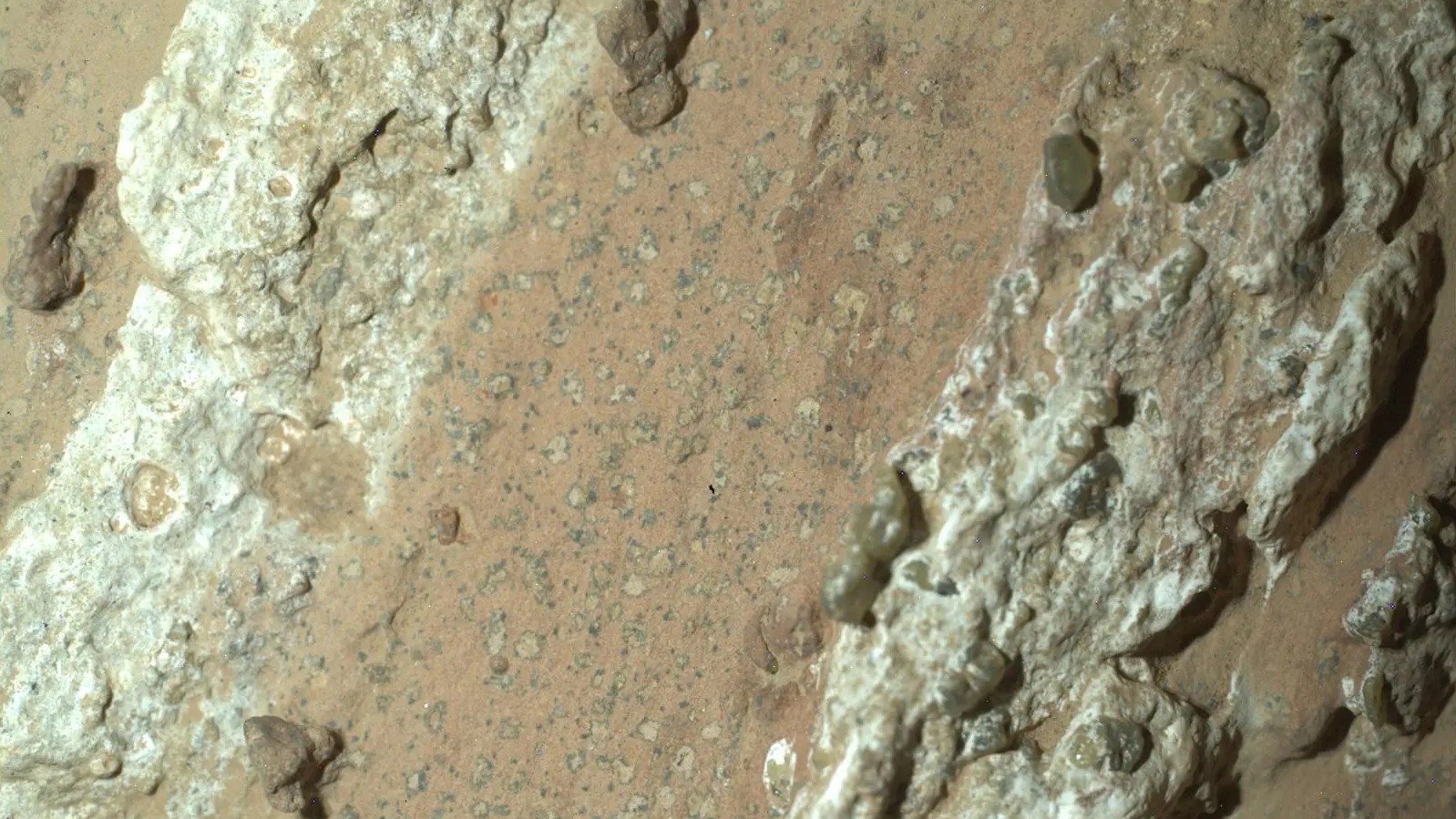NASA reveals ‘clearest sign of life’ on Mars yet
The evidence came in the form of a rock sample collected on the planet


A free daily email with the biggest news stories of the day – and the best features from TheWeek.com
You are now subscribed
Your newsletter sign-up was successful
What happened
NASA announced Wednesday that a rock sample collected on Mars by its Perseverance rover last year contains what appear to be biosignatures, or signs of previous life, on the Red Planet. “This very well could be the clearest sign of life that we’ve ever found on Mars,” acting NASA Administrator Sean Duffy said at a press conference coinciding with the publication of a paper on the findings in the journal Nature.
Who said what
NASA scientists were “giddy” when Perseverance found the rock with telltale signs of microbial life in a former lakebed called the Jezero Crater, The New York Times said. After a year studying the sample from 140 million miles away, “we are at the point where we are actually saying in detail, ‘Here is what we have found,’” study lead author Joel Hurowitz told the Times. And the chances are “better than a coin flip” that the sample contained convincing evidence of life.
The rock, dubbed Cheyava Falls, is “composed of finely packed sediment and covered in specks resembling poppy seeds and leopard spots,” said The Washington Post. Those specks, the study found, are “minerals that — on Earth — have traditionally been created from microbial activity.” That’s the “closest we’ve actually come to discovering ancient life on Mars,” NASA science mission chief Nicky Fox told reporters, but it “certainly is not the final answer.”
The Week
Escape your echo chamber. Get the facts behind the news, plus analysis from multiple perspectives.

Sign up for The Week's Free Newsletters
From our morning news briefing to a weekly Good News Newsletter, get the best of The Week delivered directly to your inbox.
From our morning news briefing to a weekly Good News Newsletter, get the best of The Week delivered directly to your inbox.
What happened?
The “underlying elephant in the room” is that for the NASA scientists to confirm their theories, the rock samples “need to be returned to Earth,” said Space.com, and “NASA’s Mars Sample Return program remains in limbo due to budget constraints” and “priority shifts” in the Trump administration.
A free daily email with the biggest news stories of the day – and the best features from TheWeek.com
Rafi Schwartz has worked as a politics writer at The Week since 2022, where he covers elections, Congress and the White House. He was previously a contributing writer with Mic focusing largely on politics, a senior writer with Splinter News, a staff writer for Fusion's news lab, and the managing editor of Heeb Magazine, a Jewish life and culture publication. Rafi's work has appeared in Rolling Stone, GOOD and The Forward, among others.
-
 Colbert, CBS spar over FCC and Talarico interview
Colbert, CBS spar over FCC and Talarico interviewSpeed Read The late night host said CBS pulled his interview with Democratic Texas state representative James Talarico over new FCC rules about political interviews
-
 The Week contest: AI bellyaching
The Week contest: AI bellyachingPuzzles and Quizzes
-
 Political cartoons for February 18
Political cartoons for February 18Cartoons Wednesday’s political cartoons include the DOW, human replacement, and more
-
 How roadkill is a surprising boon to scientific research
How roadkill is a surprising boon to scientific researchUnder the radar We can learn from animals without trapping and capturing them
-
 NASA’s lunar rocket is surrounded by safety concerns
NASA’s lunar rocket is surrounded by safety concernsThe Explainer The agency hopes to launch a new mission to the moon in the coming months
-
 Nasa’s new dark matter map
Nasa’s new dark matter mapUnder the Radar High-resolution images may help scientists understand the ‘gravitational scaffolding into which everything else falls and is built into galaxies’
-
 The world’s oldest rock art paints a picture of human migration
The world’s oldest rock art paints a picture of human migrationUnder the Radar The art is believed to be over 67,000 years old
-
 Moon dust has earthly elements thanks to a magnetic bridge
Moon dust has earthly elements thanks to a magnetic bridgeUnder the radar The substances could help supply a lunar base
-
 Winter storm lashes much of US South, East Coast
Winter storm lashes much of US South, East CoastSpeed Read The storm spread across 2,000 miles of the country
-
 The ocean is getting more acidic — and harming sharks’ teeth
The ocean is getting more acidic — and harming sharks’ teethUnder the Radar ‘There is a corrosion effect on sharks’ teeth,’ the study’s author said
-
 How Mars influences Earth’s climate
How Mars influences Earth’s climateThe explainer A pull in the right direction
